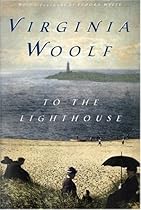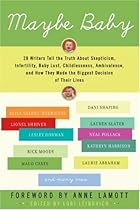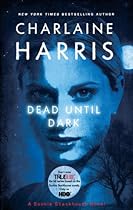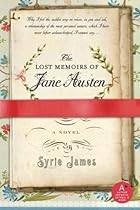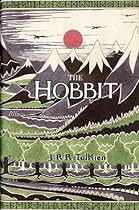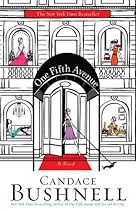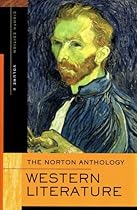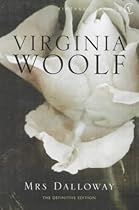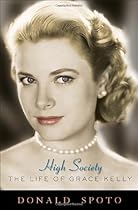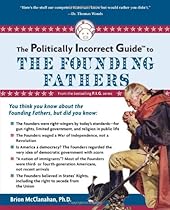As a personal project, I'd like to try to tackle the 1001 Books You Must Read Before You Die. Thanks to
ukaunz on listology for posting an online version for me to copy and paste from! This list is really just novels/novellas, not books in general, and I feel like there's a lot for the 2000s since we're just 10 years in, and I'm sure there are selections I won't agree with, but I'm still going to try to read a lot of them. I'll just have to set separate goals for plays and poetry.
Total of books read: 82/1001
My total makes me a little sad. But this list is heavy on more modern stuff, and I have only a handful of checks pre-1900. You can tell where my reading interests are! Perhaps this will encourage me to branch out a little.
2000s
1.Never Let Me Go – Kazuo Ishiguro
2.Saturday – Ian McEwan
3.On Beauty – Zadie Smith
4.Slow Man – J.M. Coetzee
5.Adjunct: An Undigest – Peter Manson
6.The Sea – John Banville
7.The Red Queen – Margaret Drabble
8.The Plot Against America – Philip Roth
9.The Master – Colm Tóibín
10.Vanishing Point – David Markson
11.The Lambs of London – Peter Ackroyd
12.Dining on Stones – Iain Sinclair
13.Cloud Atlas – David Mitchell
14.Drop City – T. Coraghessan Boyle
15.The Colour – Rose Tremain
16.Thursbitch – Alan Garner
17.The Light of Day – Graham Swift
18.What I Loved – Siri Hustvedt
19.The Curious Incident of the Dog in the Night-Time – Mark Haddon
20.Islands – Dan Sleigh
21.Elizabeth Costello – J.M. Coetzee
22.London Orbital – Iain Sinclair
23.Family Matters – Rohinton Mistry
24.Fingersmith – Sarah Waters
25.The Double – José Saramago
26.Everything is Illuminated – Jonathan Safran Foer
27.Unless – Carol Shields
28.Kafka on the Shore – Haruki Murakami
29.The Story of Lucy Gault – William Trevor
30.That They May Face the Rising Sun – John McGahern
31.In the Forest – Edna O’Brien
32.Shroud – John Banville
33.Middlesex – Jeffrey Eugenides
34.Youth – J.M. Coetzee
35.Dead Air – Iain Banks
36.Nowhere Man – Aleksandar Hemon
37.The Book of Illusions – Paul Auster
38.Gabriel’s Gift – Hanif Kureishi
39.Austerlitz – W.G. Sebald
40.Platform – Michael Houellebecq
41.Schooling – Heather McGowan
42.Atonement – Ian McEwan
43.The Corrections – Jonathan Franzen
44.Don’t Move – Margaret Mazzantini
45.The Body Artist – Don DeLillo
46.Fury – Salman Rushdie
47.At Swim, Two Boys – Jamie O’Neill
48.Choke – Chuck Palahniuk
49.Life of Pi – Yann Martel
50.The Feast of the Goat – Mario Vargos Llosa
51.An Obedient Father – Akhil Sharma
52.The Devil and Miss Prym – Paulo Coelho
53.Spring Flowers, Spring Frost – Ismail Kadare
54.White Teeth – Zadie Smith
55.The Heart of Redness – Zakes Mda
56.Under the Skin – Michel Faber
57.Ignorance – Milan Kundera
58.Nineteen Seventy Seven – David Peace
59.Celestial Harmonies – Péter Esterházy
60.City of God – E.L. Doctorow
61.How the Dead Live – Will Self
62.The Human Stain – Philip Roth
63.The Blind Assassin – Margaret Atwood
64.After the Quake – Haruki Murakami
65.Small Remedies – Shashi Deshpande
66.Super-Cannes – J.G. Ballard
67.House of Leaves – Mark Z. Danielewski
68.Blonde – Joyce Carol Oates
69.Pastoralia – George Saunders
1900s
70.Timbuktu – Paul Auster
71.The Romantics – Pankaj Mishra
72.Cryptonomicon – Neal Stephenson
73.As If I Am Not There – Slavenka Drakuli?
74.Everything You Need – A.L. Kennedy
75.Fear and Trembling – Amélie Nothomb
76.The Ground Beneath Her Feet – Salman Rushdie
77.Disgrace – J.M. Coetzee
78.Sputnik Sweetheart – Haruki Murakami
79.Elementary Particles – Michel Houellebecq
80.Intimacy – Hanif Kureishi
81.Amsterdam – Ian McEwan
82.Cloudsplitter – Russell Banks
83.All Souls Day – Cees Nooteboom
84.The Talk of the Town – Ardal O’Hanlon
85.Tipping the Velvet – Sarah Waters
86.The Poisonwood Bible – Barbara Kingsolver
87.Glamorama – Bret Easton Ellis
88.Another World – Pat Barker
89.The Hours – Michael Cunningham
90.Veronika Decides to Die – Paulo Coelho
91.Mason & Dixon – Thomas Pynchon
92.The God of Small Things – Arundhati Roy
93.Memoirs of a Geisha – Arthur Golden
94.Great Apes – Will Self
95.Enduring Love – Ian McEwan
96.Underworld – Don DeLillo
97.Jack Maggs – Peter Carey
98.The Life of Insects – Victor Pelevin
99.American Pastoral – Philip Roth
100.The Untouchable – John Banville
101.Silk – Alessandro Baricco
102.Cocaine Nights – J.G. Ballard
103.Hallucinating Foucault – Patricia Duncker
104.Fugitive Pieces – Anne Michaels
105.The Ghost Road – Pat Barker
106.Forever a Stranger – Hella Haasse
107.Infinite Jest – David Foster Wallace
108.The Clay Machine-Gun – Victor Pelevin
109.Alias Grace – Margaret Atwood
110.The Unconsoled – Kazuo Ishiguro
111.Morvern Callar – Alan Warner
112.The Information – Martin Amis
113.The Moor’s Last Sigh – Salman Rushdie
114.Sabbath’s Theater – Philip Roth
115.The Rings of Saturn – W.G. Sebald
116.The Reader – Bernhard Schlink
117.A Fine Balance – Rohinton Mistry
118.Love’s Work – Gillian Rose
119.The End of the Story – Lydia Davis
120.Mr. Vertigo – Paul Auster
121.The Folding Star – Alan Hollinghurst
122.Whatever – Michel Houellebecq
123.Land – Park Kyong-ni
124.The Master of Petersburg – J.M. Coetzee
125.The Wind-Up Bird Chronicle – Haruki Murakami
126.Pereira Declares: A Testimony – Antonio Tabucchi
127.City Sister Silver – Jàchym Topol
128.How Late It Was, How Late – James Kelman
129.Captain Corelli’s Mandolin – Louis de Bernieres
130.Felicia’s Journey – William Trevor
131.Disappearance – David Dabydeen
132.The Invention of Curried Sausage – Uwe Timm
133.The Shipping News – E. Annie Proulx
134.Trainspotting – Irvine Welsh
135.Birdsong – Sebastian Faulks
136.Looking for the Possible Dance – A.L. Kennedy
137.Operation Shylock – Philip Roth
138.Complicity – Iain Banks
139.On Love – Alain de Botton
140.What a Carve Up! – Jonathan Coe
141.A Suitable Boy – Vikram Seth
142.The Stone Diaries – Carol Shields
143.The Virgin Suicides – Jeffrey Eugenides
144.The House of Doctor Dee – Peter Ackroyd
145.The Robber Bride – Margaret Atwood
146.The Emigrants – W.G. Sebald
147.The Secret History – Donna Tartt
148.Life is a Caravanserai – Emine Özdamar
149.The Discovery of Heaven – Harry Mulisch
150.A Heart So White – Javier Marias
151.Possessing the Secret of Joy – Alice Walker
152.Indigo – Marina Warner
153.The Crow Road – Iain Banks
154.Written on the Body – Jeanette Winterson
155.Jazz – Toni Morrison
156.The English Patient – Michael Ondaatje
157.Smilla’s Sense of Snow – Peter Høeg
158.The Butcher Boy – Patrick McCabe
159.Black Water – Joyce Carol Oates
160.The Heather Blazing – Colm Tóibín
161.Asphodel – H.D. (Hilda Doolittle)
162.Black Dogs – Ian McEwan
163.Hideous Kinky – Esther Freud
164.Arcadia – Jim Crace
165.Wild Swans – Jung Chang
166.American Psycho – Bret Easton Ellis
167.Time’s Arrow – Martin Amis
168.Mao II – Don DeLillo
169.Typical – Padgett Powell
170.Regeneration – Pat Barker
171.Downriver – Iain Sinclair
172.Señor Vivo and the Coca Lord – Louis de Bernieres
173.Wise Children – Angela Carter
174.Get Shorty – Elmore Leonard
175.Amongst Women – John McGahern
176.Vineland – Thomas Pynchon
177.Vertigo – W.G. Sebald
178.Stone Junction – Jim Dodge
179.The Music of Chance – Paul Auster
180.The Things They Carried – Tim O’Brien
181.A Home at the End of the World – Michael Cunningham
182.Like Life – Lorrie Moore
183.Possession – A.S. Byatt
184.The Buddha of Suburbia – Hanif Kureishi
185.The Midnight Examiner – William Kotzwinkle
186.A Disaffection – James Kelman
187.Sexing the Cherry – Jeanette Winterson
188.Moon Palace – Paul Auster
189.Billy Bathgate – E.L. Doctorow
190.Remains of the Day – Kazuo Ishiguro
191.The Melancholy of Resistance – László Krasznahorkai
192.The Temple of My Familiar – Alice Walker
193.The Trick is to Keep Breathing – Janice Galloway
194.The History of the Siege of Lisbon – José Saramago
195.Like Water for Chocolate – Laura Esquivel
196.A Prayer for Owen Meany – John Irving
197.London Fields – Martin Amis
198.The Book of Evidence – John Banville
199.Cat’s Eye – Margaret Atwood
200.Foucault’s Pendulum – Umberto Eco
201.The Beautiful Room is Empty – Edmund White
202.Wittgenstein’s Mistress – David Markson
203.The Satanic Verses – Salman Rushdie
204.The Swimming-Pool Library – Alan Hollinghurst
205.Oscar and Lucinda – Peter Carey
206.Libra – Don DeLillo
207.The Player of Games – Iain M. Banks
208.Nervous Conditions – Tsitsi Dangarembga
209.The Long Dark Teatime of the Soul – Douglas Adams
210.Dirk Gently’s Holistic Detective Agency – Douglas Adams
211.The Radiant Way – Margaret Drabble
212.The Afternoon of a Writer – Peter Handke
213.The Black Dahlia – James Ellroy
214.The Passion – Jeanette Winterson
215.The Pigeon – Patrick Süskind
216.The Child in Time – Ian McEwan
217.Cigarettes – Harry Mathews
218.The Bonfire of the Vanities – Tom Wolfe
219.The New York Trilogy – Paul Auster
220.World’s End – T. Coraghessan Boyle
221.Enigma of Arrival – V.S. Naipaul
222.The Taebek Mountains – Jo Jung-rae
223.Beloved – Toni Morrison
224.Anagrams – Lorrie Moore
225.Matigari – Ngugi Wa Thiong’o
226.Marya – Joyce Carol Oates
227.Watchmen – Alan Moore & David Gibbons
228.The Old Devils – Kingsley Amis
229.Lost Language of Cranes – David Leavitt
230.An Artist of the Floating World – Kazuo Ishiguro
231.Extinction – Thomas Bernhard
232.Foe – J.M. Coetzee
233.The Drowned and the Saved – Primo Levi
234.Reasons to Live – Amy Hempel
235.The Parable of the Blind – Gert Hofmann
236.Love in the Time of Cholera – Gabriel García Márquez
237.Oranges Are Not the Only Fruit – Jeanette Winterson
238.The Cider House Rules – John Irving
239.A Maggot – John Fowles
240.Less Than Zero – Bret Easton Ellis
241.Contact – Carl Sagan
242.The Handmaid’s Tale – Margaret Atwood
243.Perfume – Patrick Süskind
244.Old Masters – Thomas Bernhard
245.White Noise – Don DeLillo
246.Queer – William Burroughs
247.Hawksmoor – Peter Ackroyd
248.Legend – David Gemmell
249.Dictionary of the Khazars – Milorad Pavi?
250.The Bus Conductor Hines – James Kelman
251.The Year of the Death of Ricardo Reis – José Saramago
252.The Lover – Marguerite Duras
253.Empire of the Sun – J.G. Ballard
254.The Wasp Factory – Iain Banks
255.Nights at the Circus – Angela Carter
256.The Unbearable Lightness of Being – Milan Kundera
257.Blood and Guts in High School – Kathy Acker
258.Neuromancer – William Gibson
259.Flaubert’s Parrot – Julian Barnes
260.Money: A Suicide Note – Martin Amis
261.Shame – Salman Rushdie
262.Worstward Ho – Samuel Beckett
263.Fools of Fortune – William Trevor
264.La Brava – Elmore Leonard
265.Waterland – Graham Swift
266.The Life and Times of Michael K – J.M. Coetzee
267.The Diary of Jane Somers – Doris Lessing
268.The Piano Teacher – Elfriede Jelinek
269.The Sorrow of Belgium – Hugo Claus
270.If Not Now, When? – Primo Levi
271.A Boy’s Own Story – Edmund White
272.The Color Purple – Alice Walker
273.Wittgenstein’s Nephew – Thomas Bernhard
274.A Pale View of Hills – Kazuo Ishiguro
275.Schindler’s Ark – Thomas Keneally
276.The House of the Spirits – Isabel Allende
277.The Newton Letter – John Banville
278.On the Black Hill – Bruce Chatwin
279.Concrete – Thomas Bernhard
280.The Names – Don DeLillo
281.Rabbit is Rich – John Updike
282.Lanark: A Life in Four Books – Alasdair Gray
283.The Comfort of Strangers – Ian McEwan
284.July’s People – Nadine Gordimer
285.Summer in Baden-Baden – Leonid Tsypkin
286.Broken April – Ismail Kadare
287.Waiting for the Barbarians – J.M. Coetzee
288.Midnight’s Children – Salman Rushdie
289.Rites of Passage – William Golding
290.Rituals – Cees Nooteboom
291.Confederacy of Dunces – John Kennedy Toole
292.City Primeval – Elmore Leonard
293.The Name of the Rose – Umberto Eco
294.The Book of Laughter and Forgetting – Milan Kundera
295.Smiley’s People – John Le Carré
296.Shikasta – Doris Lessing
297.A Bend in the River – V.S. Naipaul
298.Burger’s Daughter - Nadine Gordimer
299.The Safety Net – Heinrich Böll
300.If On a Winter’s Night a Traveler – Italo Calvino
301.The Hitchhiker’s Guide to the Galaxy – Douglas Adams
302.The Cement Garden – Ian McEwan
303.The World According to Garp – John Irving
304.Life: A User’s Manual – Georges Perec
305.The Sea, The Sea – Iris Murdoch
306.The Singapore Grip – J.G. Farrell
307.Yes – Thomas Bernhard
308.The Virgin in the Garden – A.S. Byatt
309.In the Heart of the Country – J.M. Coetzee
310.The Passion of New Eve – Angela Carter
311.Delta of Venus – Anaïs Nin
312.The Shining – Stephen King
313.Dispatches – Michael Herr
314.Petals of Blood – Ngugi Wa Thiong’o
315.Song of Solomon – Toni Morrison
316.The Hour of the Star – Clarice Lispector
317.The Left-Handed Woman – Peter Handke
318.Ratner’s Star – Don DeLillo
319.The Public Burning – Robert Coover
320.Interview With the Vampire – Anne Rice
321.Cutter and Bone – Newton Thornburg
322.Amateurs – Donald Barthelme
323.Patterns of Childhood – Christa Wolf
324.Autumn of the Patriarch – Gabriel García Márquez
325.W, or the Memory of Childhood – Georges Perec
326.A Dance to the Music of Time – Anthony Powell
327.Grimus – Salman Rushdie
328.The Dead Father – Donald Barthelme
329.Fateless – Imre Kertész
330.Willard and His Bowling Trophies – Richard Brautigan
331.High Rise – J.G. Ballard
332.Humboldt’s Gift – Saul Bellow
333.Dead Babies – Martin Amis
334.Correction – Thomas Bernhard
335.Ragtime – E.L. Doctorow
336.The Fan Man – William Kotzwinkle
337.Dusklands – J.M. Coetzee
338.The Lost Honor of Katharina Blum – Heinrich Böll
339.Tinker Tailor Soldier Spy – John Le Carré
340.Breakfast of Champions – Kurt Vonnegut, Jr.
341.Fear of Flying – Erica Jong
342.A Question of Power – Bessie Head
343.The Siege of Krishnapur – J.G. Farrell
344.The Castle of Crossed Destinies – Italo Calvino
345.Crash – J.G. Ballard
346.The Honorary Consul – Graham Greene
347.Gravity’s Rainbow – Thomas Pynchon
348.The Black Prince – Iris Murdoch
349.Sula – Toni Morrison
350.Invisible Cities – Italo Calvino
351.The Breast – Philip Roth
352.The Summer Book – Tove Jansson
353.G – John Berger
354.Surfacing – Margaret Atwood
355.House Mother Normal – B.S. Johnson
356.In A Free State – V.S. Naipaul
357.The Book of Daniel – E.L. Doctorow
358.Fear and Loathing in Las Vegas – Hunter S. Thompson
359.Group Portrait With Lady – Heinrich Böll
360.The Wild Boys – William Burroughs
361.Rabbit Redux – John Updike
362.The Sea of Fertility – Yukio Mishima
363.The Driver’s Seat – Muriel Spark
364.The Ogre – Michael Tournier
365.The Bluest Eye – Toni Morrison
366.Goalie’s Anxiety at the Penalty Kick – Peter Handke
367.I Know Why the Caged Bird Sings – Maya Angelou
368.Mercier et Camier – Samuel Beckett
369.Troubles – J.G. Farrell
370.Jahrestage – Uwe Johnson
371.The Atrocity Exhibition – J.G. Ballard
372.Tent of Miracles – Jorge Amado
373.Pricksongs and Descants – Robert Coover
374.Blind Man With a Pistol – Chester Hines
375.Slaughterhouse-five – Kurt Vonnegut, Jr.
376.The French Lieutenant’s Woman – John Fowles
377.The Green Man – Kingsley Amis
378.Portnoy’s Complaint – Philip Roth
379.The Godfather – Mario Puzo
380.Ada – Vladimir Nabokov
381.Them – Joyce Carol Oates
382.A Void/Avoid – Georges Perec
383.Eva Trout – Elizabeth Bowen
384.Myra Breckinridge – Gore Vidal
385.The Nice and the Good – Iris Murdoch
386.Belle du Seigneur – Albert Cohen
387.Cancer Ward – Aleksandr Isayevich Solzhenitsyn
388.The First Circle – Aleksandr Isayevich Solzhenitsyn
389.2001: A Space Odyssey – Arthur C. Clarke
390.Do Androids Dream of Electric Sheep? – Philip K. Dick
391.Dark as the Grave Wherein My Friend is Laid – Malcolm Lowry
392.The German Lesson – Siegfried Lenz
393.In Watermelon Sugar – Richard Brautigan
394.A Kestrel for a Knave – Barry Hines
395.The Quest for Christa T. – Christa Wolf
396.Chocky – John Wyndham
397.The Electric Kool-Aid Acid Test – Tom Wolfe
398.The Cubs and Other Stories – Mario Vargas Llosa
399.One Hundred Years of Solitude - Gabriel García Márquez
400.The Master and Margarita – Mikhail Bulgakov
401.Pilgrimage – Dorothy Richardson
402.The Joke – Milan Kundera
403.No Laughing Matter – Angus Wilson
404.The Third Policeman – Flann O’Brien
405.A Man Asleep – Georges Perec
406.The Birds Fall Down – Rebecca West
407.Trawl – B.S. Johnson
408.In Cold Blood – Truman Capote
409.The Magus – John Fowles
410.The Vice-Consul – Marguerite Duras
411.Wide Sargasso Sea – Jean Rhys
412.Giles Goat-Boy – John Barth
413.The Crying of Lot 49 – Thomas Pynchon
414.Things – Georges Perec
415.The River Between – Ngugi wa Thiong’o
416.August is a Wicked Month – Edna O’Brien
417.God Bless You, Mr. Rosewater – Kurt Vonnegut
418.Everything That Rises Must Converge – Flannery O’Connor
419.The Passion According to G.H. – Clarice Lispector
420.Sometimes a Great Notion – Ken Kesey
421.Come Back, Dr. Caligari – Donald Bartholme
422.Albert Angelo – B.S. Johnson
423.Arrow of God – Chinua Achebe
424.The Ravishing of Lol V. Stein – Marguerite Duras
425.Herzog – Saul Bellow
426.V. – Thomas Pynchon
427.Cat’s Cradle – Kurt Vonnegut
428.The Graduate – Charles Webb
429.Manon des Sources – Marcel Pagnol
430.The Spy Who Came in from the Cold – John Le Carré
431.The Girls of Slender Means – Muriel Spark
432.Inside Mr. Enderby – Anthony Burgess
433.The Bell Jar – Sylvia Plath
434.One Day in the Life of Ivan Denisovich – Aleksandr Isayevich Solzhenitsyn
435.The Collector – John Fowles
436.One Flew Over the Cuckoo’s Nest – Ken Kesey
437.A Clockwork Orange – Anthony Burgess
438.Pale Fire – Vladimir Nabokov
439.The Drowned World – J.G. Ballard
440.The Golden Notebook – Doris Lessing
441.Labyrinths – Jorg Luis Borges
442.Girl With Green Eyes – Edna O’Brien
443.The Garden of the Finzi-Continis – Giorgio Bassani
444.Stranger in a Strange Land – Robert Heinlein
445.Franny and Zooey – J.D. Salinger
446.A Severed Head – Iris Murdoch
447.Faces in the Water – Janet Frame
448.Solaris – Stanislaw Lem
449.Cat and Mouse – Günter Grass
450.The Prime of Miss Jean Brodie – Muriel Spark
451.Catch-22 – Joseph Heller
452.The Violent Bear it Away – Flannery O’Connor
453.How It Is – Samuel Beckett
454.Our Ancestors – Italo Calvino
455.The Country Girls – Edna O’Brien
456.To Kill a Mockingbird – Harper Lee
457.Rabbit, Run – John Updike
458.Promise at Dawn – Romain Gary
459.Cider With Rosie – Laurie Lee
460.Billy Liar – Keith Waterhouse
461.Naked Lunch – William Burroughs
462.The Tin Drum – Günter Grass
463.Absolute Beginners – Colin MacInnes
464.Henderson the Rain King – Saul Bellow
465.Memento Mori – Muriel Spark
466.Billiards at Half-Past Nine – Heinrich Böll
467.Breakfast at Tiffany’s – Truman Capote
468.The Leopard – Giuseppe Tomasi di Lampedusa
469.Pluck the Bud and Destroy the Offspring – Kenzaburo Oe
470.A Town Like Alice – Nevil Shute
471.The Bitter Glass – Eilís Dillon
472.Things Fall Apart – Chinua Achebe
473.Saturday Night and Sunday Morning – Alan Sillitoe
474.Mrs. ‘Arris Goes to Paris – Paul Gallico
475.Borstal Boy – Brendan Behan
476.The End of the Road – John Barth
477.The Once and Future King – T.H. White
478.The Bell – Iris Murdoch
479.Jealousy – Alain Robbe-Grillet
480.Voss – Patrick White
481.The Midwich Cuckoos – John Wyndham
482.Blue Noon – Georges Bataille
483.Homo Faber – Max Frisch
484.On the Road – Jack Kerouac
485.Pnin – Vladimir Nabokov
486.Doctor Zhivago – Boris Pasternak
487.The Wonderful “O” – James Thurber
488.Justine – Lawrence Durrell
489.Giovanni’s Room – James Baldwin
490.The Lonely Londoners – Sam Selvon
491.The Roots of Heaven – Romain Gary
492.Seize the Day – Saul Bellow
493.The Floating Opera – John Barth
494.The Lord of the Rings – J.R.R. Tolkien
495.The Talented Mr. Ripley – Patricia Highsmith
496.Lolita – Vladimir Nabokov
497.A World of Love – Elizabeth Bowen
498.The Trusting and the Maimed – James Plunkett
499.The Quiet American – Graham Greene
500.The Last Temptation of Christ – Nikos Kazantzákis
501.The Recognitions – William Gaddis
502.The Ragazzi – Pier Paulo Pasolini
503.Bonjour Tristesse – Françoise Sagan
504.I’m Not Stiller – Max Frisch
505.Self Condemned – Wyndham Lewis
506.The Story of O – Pauline Réage
507.A Ghost at Noon – Alberto Moravia
508.Lord of the Flies – William Golding
509.Under the Net – Iris Murdoch
510.The Go-Between – L.P. Hartley
511.The Long Goodbye – Raymond Chandler
512.The Unnamable – Samuel Beckett
513.Watt – Samuel Beckett
514.Lucky Jim – Kingsley Amis
515.Junkie – William Burroughs
516.The Adventures of Augie March – Saul Bellow
517.Go Tell It on the Mountain – James Baldwin
518.Casino Royale – Ian Fleming
519.The Judge and His Hangman – Friedrich Dürrenmatt
520.Invisible Man – Ralph Ellison
521.The Old Man and the Sea – Ernest Hemingway
522.Wise Blood – Flannery O’Connor
523.The Killer Inside Me – Jim Thompson
524.Memoirs of Hadrian – Marguerite Yourcenar
525.Malone Dies – Samuel Beckett
526.Day of the Triffids – John Wyndham
527.Foundation – Isaac Asimov
528.The Opposing Shore – Julien Gracq
529.The Catcher in the Rye – J.D. Salinger
530.The Rebel – Albert Camus
531.Molloy – Samuel Beckett
532.The End of the Affair – Graham Greene
533.The Abbot C – Georges Bataille
534.The Labyrinth of Solitude – Octavio Paz
535.The Third Man – Graham Greene
536.The 13 Clocks – James Thurber
537.Gormenghast – Mervyn Peake
538.The Grass is Singing – Doris Lessing
539.I, Robot – Isaac Asimov
540.The Moon and the Bonfires – Cesare Pavese
541.The Garden Where the Brass Band Played – Simon Vestdijk
542.Love in a Cold Climate – Nancy Mitford
543.The Case of Comrade Tulayev – Victor Serge
544.The Heat of the Day – Elizabeth Bowen
545.Kingdom of This World – Alejo Carpentier
546.The Man With the Golden Arm – Nelson Algren
547.Nineteen Eighty-Four – George Orwell
548.All About H. Hatterr – G.V. Desani
549.Disobedience – Alberto Moravia
550.Death Sentence – Maurice Blanchot
551.The Heart of the Matter – Graham Greene
552.Cry, the Beloved Country – Alan Paton
553.Doctor Faustus – Thomas Mann
554.The Victim – Saul Bellow
555.Exercises in Style – Raymond Queneau
556.If This Is a Man – Primo Levi
557.Under the Volcano – Malcolm Lowry
558.The Path to the Nest of Spiders – Italo Calvino
559.The Plague – Albert Camus
560.Back – Henry Green
561.Titus Groan – Mervyn Peake
562.The Bridge on the Drina – Ivo Andri?
563.Brideshead Revisited – Evelyn Waugh
564.Animal Farm – George Orwell
565.Cannery Row – John Steinbeck
566.The Pursuit of Love – Nancy Mitford
567.Loving – Henry Green
568.Arcanum 17 – André Breton
569.Christ Stopped at Eboli – Carlo Levi
570.The Razor’s Edge – William Somerset Maugham
571.Transit – Anna Seghers
572.Ficciones – Jorge Luis Borges
573.Dangling Man – Saul Bellow
574.The Little Prince – Antoine de Saint-Exupéry
575.Caught – Henry Green
576.The Glass Bead Game – Herman Hesse
577.Embers – Sandor Marai
578.Go Down, Moses – William Faulkner
579.The Outsider – Albert Camus
580.In Sicily – Elio Vittorini
581.The Poor Mouth – Flann O’Brien
582.The Living and the Dead – Patrick White
583.Hangover Square – Patrick Hamilton
584.Between the Acts – Virginia Woolf
585.The Hamlet – William Faulkner
586.Farewell My Lovely – Raymond Chandler
587.For Whom the Bell Tolls – Ernest Hemingway
588.Native Son – Richard Wright
589.The Power and the Glory – Graham Greene
590.The Tartar Steppe – Dino Buzzati
591.Party Going – Henry Green
592.The Grapes of Wrath – John Steinbeck
593.Finnegans Wake – James Joyce
594.At Swim-Two-Birds – Flann O’Brien
595.Coming Up for Air – George Orwell
596.Goodbye to Berlin – Christopher Isherwood
597.Tropic of Capricorn – Henry Miller
598.Good Morning, Midnight – Jean Rhys
599.The Big Sleep – Raymond Chandler
600.After the Death of Don Juan – Sylvie Townsend Warner
601.Miss Pettigrew Lives for a Day – Winifred Watson
602.Nausea – Jean-Paul Sartre
603.Rebecca – Daphne du Maurier
604.Cause for Alarm – Eric Ambler
605.Brighton Rock – Graham Greene
606.U.S.A. – John Dos Passos
607.Murphy – Samuel Beckett
608.Of Mice and Men – John Steinbeck
609.Their Eyes Were Watching God – Zora Neale Hurston
610.The Hobbit – J.R.R. Tolkien
611.The Years – Virginia Woolf
612.In Parenthesis – David Jones
613.The Revenge for Love – Wyndham Lewis
614.Out of Africa – Isak Dineson (Karen Blixen)
615.To Have and Have Not – Ernest Hemingway
616.Summer Will Show – Sylvia Townsend Warner
617.Eyeless in Gaza – Aldous Huxley
618.The Thinking Reed – Rebecca West
619.Gone With the Wind – Margaret Mitchell
620.Keep the Aspidistra Flying – George Orwell
621.Wild Harbour – Ian MacPherson
622.Absalom, Absalom! – William Faulkner
623.At the Mountains of Madness – H.P. Lovecraft
624.Nightwood – Djuna Barnes
625.Independent People – Halldór Laxness
626.Auto-da-Fé – Elias Canetti
627.The Last of Mr. Norris – Christopher Isherwood
628.They Shoot Horses, Don’t They? – Horace McCoy
629.The House in Paris – Elizabeth Bowen
630.England Made Me – Graham Greene
631.Burmese Days – George Orwell
632.The Nine Tailors – Dorothy L. Sayers
633.Threepenny Novel – Bertolt Brecht
634.Novel With Cocaine – M. Ageyev
635.The Postman Always Rings Twice – James M. Cain
636.Tropic of Cancer – Henry Miller
637.A Handful of Dust – Evelyn Waugh
638.Tender is the Night – F. Scott Fitzgerald
639.Thank You, Jeeves – P.G. Wodehouse
640.Call it Sleep – Henry Roth
641.Miss Lonelyhearts – Nathanael West
642.Murder Must Advertise – Dorothy L. Sayers
643.The Autobiography of Alice B. Toklas – Gertrude Stein
644.Testament of Youth – Vera Brittain
645.A Day Off – Storm Jameson
646.The Man Without Qualities – Robert Musil
647.A Scots Quair (Sunset Song) – Lewis Grassic Gibbon
648.Journey to the End of the Night – Louis-Ferdinand Céline
649.Brave New World – Aldous Huxley
650.Cold Comfort Farm – Stella Gibbons
651.To the North – Elizabeth Bowen
652.The Thin Man – Dashiell Hammett
653.The Radetzky March – Joseph Roth
654.The Waves – Virginia Woolf
655.The Glass Key – Dashiell Hammett
656.Cakes and Ale – W. Somerset Maugham
657.The Apes of God – Wyndham Lewis
658.Her Privates We – Frederic Manning
659.Vile Bodies – Evelyn Waugh
660.The Maltese Falcon – Dashiell Hammett
661.Hebdomeros – Giorgio de Chirico
662.Passing – Nella Larsen
663.A Farewell to Arms – Ernest Hemingway
664.Red Harvest – Dashiell Hammett
665.Living – Henry Green
666.The Time of Indifference – Alberto Moravia
667.All Quiet on the Western Front – Erich Maria Remarque
668.Berlin Alexanderplatz – Alfred Döblin
669.The Last September – Elizabeth Bowen
670.Harriet Hume – Rebecca West
671.The Sound and the Fury – William Faulkner
672.Les Enfants Terribles – Jean Cocteau
673.Look Homeward, Angel – Thomas Wolfe
674.Story of the Eye – Georges Bataille
675.Orlando – Virginia Woolf
676.Lady Chatterley’s Lover – D.H. Lawrence
677.The Well of Loneliness – Radclyffe Hall
678.The Childermass – Wyndham Lewis
679.Quartet – Jean Rhys
680.Decline and Fall – Evelyn Waugh
681.Quicksand – Nella Larsen
682.Parade’s End – Ford Madox Ford
683.Nadja – André Breton
684.Steppenwolf – Herman Hesse
685.Remembrance of Things Past – Marcel Proust
686.To The Lighthouse – Virginia Woolf
687.Tarka the Otter – Henry Williamson
688.Amerika – Franz Kafka
689.The Sun Also Rises – Ernest Hemingway
690.Blindness – Henry Green
691.The Castle – Franz Kafka
692.The Good Soldier Švejk – Jaroslav Hašek
693.The Plumed Serpent – D.H. Lawrence
694.One, None and a Hundred Thousand – Luigi Pirandello
695.The Murder of Roger Ackroyd – Agatha Christie
696.The Making of Americans – Gertrude Stein
697.Manhattan Transfer – John Dos Passos
698.Mrs. Dalloway – Virginia Woolf
699.The Great Gatsby – F. Scott Fitzgerald
700.The Counterfeiters – André Gide
701.The Trial – Franz Kafka
702.The Artamonov Business – Maxim Gorky
703.The Professor’s House – Willa Cather
704.Billy Budd, Foretopman – Herman Melville
705.The Green Hat – Michael Arlen
706.The Magic Mountain – Thomas Mann
707.We – Yevgeny Zamyatin
708.A Passage to India – E.M. Forster
709.The Devil in the Flesh – Raymond Radiguet
710.Zeno’s Conscience – Italo Svevo
711.Cane – Jean Toomer
712.Antic Hay – Aldous Huxley
713.Amok – Stefan Zweig
714.The Garden Party – Katherine Mansfield
715.The Enormous Room – E.E. Cummings
716.Jacob’s Room – Virginia Woolf
717.Siddhartha – Herman Hesse
718.The Glimpses of the Moon – Edith Wharton
719.Life and Death of Harriett Frean – May Sinclair
720.The Last Days of Humanity – Karl Kraus
721.Aaron’s Rod – D.H. Lawrence
722.Babbitt – Sinclair Lewis
723.Ulysses – James Joyce
724.The Fox – D.H. Lawrence
725.Crome Yellow – Aldous Huxley
726.The Age of Innocence – Edith Wharton
727.Main Street – Sinclair Lewis
728.Women in Love – D.H. Lawrence
729.Night and Day – Virginia Woolf
730.Tarr – Wyndham Lewis
731.The Return of the Soldier – Rebecca West
732.The Shadow Line – Joseph Conrad
733.Summer – Edith Wharton
734.Growth of the Soil – Knut Hamsen
735.Bunner Sisters – Edith Wharton
736.A Portrait of the Artist as a Young Man – James Joyce
737.Under Fire – Henri Barbusse
738.Rashomon – Akutagawa Ryunosuke
739.The Good Soldier – Ford Madox Ford
740.The Voyage Out – Virginia Woolf
741.Of Human Bondage – William Somerset Maugham
742.The Rainbow – D.H. Lawrence
743.The Thirty-Nine Steps – John Buchan
744.Kokoro – Natsume Soseki
745.Locus Solus – Raymond Roussel
746.Rosshalde – Herman Hesse
747.Tarzan of the Apes – Edgar Rice Burroughs
748.The Ragged Trousered Philanthropists – Robert Tressell
749.Sons and Lovers – D.H. Lawrence
750.Death in Venice – Thomas Mann
751.The Charwoman’s Daughter – James Stephens
752.Ethan Frome – Edith Wharton
753.Fantômas – Marcel Allain and Pierre Souvestre
754.Howards End – E.M. Forster
755.Impressions of Africa – Raymond Roussel
756.Three Lives – Gertrude Stein
757.Martin Eden – Jack London
758.Strait is the Gate – André Gide
759.Tono-Bungay – H.G. Wells
760.The Inferno – Henri Barbusse
761.A Room With a View – E.M. Forster
762.The Iron Heel – Jack London
763.The Old Wives’ Tale – Arnold Bennett
764.The House on the Borderland – William Hope Hodgson
765.Mother – Maxim Gorky
766.The Secret Agent – Joseph Conrad
767.The Jungle – Upton Sinclair
768.Young Törless – Robert Musil
769.The Forsyte Sage – John Galsworthy
770.The House of Mirth – Edith Wharton
771.Professor Unrat – Heinrich Mann
772.Where Angels Fear to Tread – E.M. Forster
773.Nostromo – Joseph Conrad
774.Hadrian the Seventh – Frederick Rolfe
775.The Golden Bowl – Henry James
776.The Ambassadors – Henry James
777.The Riddle of the Sands – Erskine Childers
778.The Immoralist – André Gide
779.The Wings of the Dove – Henry James
780.Heart of Darkness – Joseph Conrad
781.The Hound of the Baskervilles – Sir Arthur Conan Doyle
782.Buddenbrooks – Thomas Mann
783.Kim – Rudyard Kipling
784.Sister Carrie – Theodore Dreiser
785.Lord Jim – Joseph Conrad
1800s
786.Some Experiences of an Irish R.M. – Somerville and Ross
787.The Stechlin – Theodore Fontane
788.The Awakening – Kate Chopin
789.The Turn of the Screw – Henry James
790.The War of the Worlds – H.G. Wells
791.The Invisible Man – H.G. Wells
792.What Maisie Knew – Henry James
793.Fruits of the Earth – André Gide
794.Dracula – Bram Stoker
795.Quo Vadis – Henryk Sienkiewicz
796.The Island of Dr. Moreau – H.G. Wells
797.The Time Machine – H.G. Wells
798.Effi Briest – Theodore Fontane
799.Jude the Obscure – Thomas Hardy
800.The Real Charlotte – Somerville and Ross
801.The Yellow Wallpaper – Charlotte Perkins Gilman
802.Born in Exile – George Gissing
803.Diary of a Nobody – George & Weedon Grossmith
804.The Adventures of Sherlock Holmes – Sir Arthur Conan Doyle
805.News from Nowhere – William Morris
806.New Grub Street – George Gissing
807.Gösta Berling’s Saga – Selma Lagerlöf
808.Tess of the D’Urbervilles – Thomas Hardy
809.The Picture of Dorian Gray – Oscar Wilde
810.The Kreutzer Sonata – Leo Tolstoy
811.La Bête Humaine – Émile Zola
812.By the Open Sea – August Strindberg
813.Hunger – Knut Hamsun
814.The Master of Ballantrae – Robert Louis Stevenson
815.Pierre and Jean – Guy de Maupassant
816.Fortunata and Jacinta – Benito Pérez Galdés
817.The People of Hemsö – August Strindberg
818.The Woodlanders – Thomas Hardy
819.She – H. Rider Haggard
820.The Strange Case of Dr. Jekyll and Mr. Hyde – Robert Louis Stevenson
821.The Mayor of Casterbridge – Thomas Hardy
822.Kidnapped – Robert Louis Stevenson
823.King Solomon’s Mines – H. Rider Haggard
824.Germinal – Émile Zola
825.The Adventures of Huckleberry Finn – Mark Twain
826.Bel-Ami – Guy de Maupassant
827.Marius the Epicurean – Walter Pater
828.Against the Grain – Joris-Karl Huysmans
829.The Death of Ivan Ilyich – Leo Tolstoy
830.A Woman’s Life – Guy de Maupassant
831.Treasure Island – Robert Louis Stevenson
832.The House by the Medlar Tree – Giovanni Verga
833.The Portrait of a Lady – Henry James
834.Bouvard and Pécuchet – Gustave Flaubert
835.Ben-Hur – Lew Wallace
836.Nana – Émile Zola
837.The Brothers Karamazov – Fyodor Dostoevsky
838.The Red Room – August Strindberg
839.Return of the Native – Thomas Hardy
840.Anna Karenina – Leo Tolstoy
841.Drunkard – Émile Zola
842.Virgin Soil – Ivan Turgenev
843.Daniel Deronda – George Eliot
844.The Hand of Ethelberta – Thomas Hardy
845.The Temptation of Saint Anthony – Gustave Flaubert
846.Far from the Madding Crowd – Thomas Hardy
847.The Enchanted Wanderer – Nicolai Leskov
848.Around the World in Eighty Days – Jules Verne
849.In a Glass Darkly – Sheridan Le Fanu
850.The Devils – Fyodor Dostoevsky
851.Erewhon – Samuel Butler
852.Spring Torrents – Ivan Turgenev
853.Middlemarch – George Eliot
854.Through the Looking Glass, and What Alice Found There – Lewis Carroll
855.King Lear of the Steppes – Ivan Turgenev
856.He Knew He Was Right – Anthony Trollope
857.War and Peace – Leo Tolstoy
858.Sentimental Education – Gustave Flaubert
859.Phineas Finn – Anthony Trollope
860.Maldoror – Comte de Lautréaumont
861.The Idiot – Fyodor Dostoevsky
862.The Moonstone – Wilkie Collins
863.Little Women – Louisa May Alcott
864.Thérèse Raquin – Émile Zola
865.The Last Chronicle of Barset – Anthony Trollope
866.Journey to the Centre of the Earth – Jules Verne
867.Crime and Punishment – Fyodor Dostoevsky
868.Alice’s Adventures in Wonderland – Lewis Carroll
869.Our Mutual Friend – Charles Dickens
870.Uncle Silas – Sheridan Le Fanu
871.Notes from the Underground – Fyodor Dostoevsky
872.The Water-Babies – Charles Kingsley
873.Les Misérables – Victor Hugo
874.Fathers and Sons – Ivan Turgenev
875.Silas Marner – George Eliot
876.Great Expectations – Charles Dickens
877.On the Eve – Ivan Turgenev
878.Castle Richmond – Anthony Trollope
879.The Mill on the Floss – George Eliot
880.The Woman in White – Wilkie Collins
881.The Marble Faun – Nathaniel Hawthorne
882.Max Havelaar – Multatuli
883.A Tale of Two Cities – Charles Dickens
884.Oblomovka – Ivan Goncharov
885.Adam Bede – George Eliot
886.Madame Bovary – Gustave Flaubert
887.North and South – Elizabeth Gaskell
888.Hard Times – Charles Dickens
889.Walden – Henry David Thoreau
890.Bleak House – Charles Dickens
891.Villette – Charlotte Brontë
892.Cranford – Elizabeth Gaskell
893.Uncle Tom’s Cabin; or, Life Among the Lonely – Harriet Beecher Stowe
894.The Blithedale Romance – Nathaniel Hawthorne
895.The House of the Seven Gables – Nathaniel Hawthorne
896.Moby-Dick – Herman Melville
897.The Scarlet Letter – Nathaniel Hawthorne
898.David Copperfield – Charles Dickens
899.Shirley – Charlotte Brontë
900.Mary Barton – Elizabeth Gaskell
901.The Tenant of Wildfell Hall – Anne Brontë
902.Wuthering Heights – Emily Brontë
903.Agnes Grey – Anne Brontë
904.Jane Eyre – Charlotte Brontë
905.Vanity Fair – William Makepeace Thackeray
906.The Count of Monte-Cristo – Alexandre Dumas
907.La Reine Margot – Alexandre Dumas
908.The Three Musketeers – Alexandre Dumas
909.The Purloined Letter – Edgar Allan Poe
910.Martin Chuzzlewit – Charles Dickens
911.The Pit and the Pendulum – Edgar Allan Poe
912.Lost Illusions – Honoré de Balzac
913.A Christmas Carol – Charles Dickens
914.Dead Souls – Nikolay Gogol
915.The Charterhouse of Parma – Stendhal
916.The Fall of the House of Usher – Edgar Allan Poe
917.The Life and Adventures of Nicholas Nickleby – Charles Dickens
918.Oliver Twist – Charles Dickens
919.The Nose – Nikolay Gogol
920.Le Père Goriot – Honoré de Balzac
921.Eugénie Grandet – Honoré de Balzac
922.The Hunchback of Notre Dame – Victor Hugo
923.The Red and the Black – Stendhal
924.The Betrothed – Alessandro Manzoni
925.Last of the Mohicans – James Fenimore Cooper
926.The Private Memoirs and Confessions of a Justified Sinner – James Hogg
927.The Albigenses – Charles Robert Maturin
928.Melmoth the Wanderer – Charles Robert Maturin
929.The Monastery – Sir Walter Scott
930.Ivanhoe – Sir Walter Scott
931.Frankenstein – Mary Wollstonecraft Shelley
932.Northanger Abbey – Jane Austen
933.Persuasion – Jane Austen
934.Ormond – Maria Edgeworth
935.Rob Roy – Sir Walter Scott
936.Emma – Jane Austen
937.Mansfield Park – Jane Austen
938.Pride and Prejudice – Jane Austen
939.The Absentee – Maria Edgeworth
940.Sense and Sensibility – Jane Austen
941.Elective Affinities – Johann Wolfgang von Goethe
942.Castle Rackrent – Maria Edgeworth
1700s
943.Hyperion – Friedrich Hölderlin
944.The Nun – Denis Diderot
945.Camilla – Fanny Burney
946.The Monk – M.G. Lewis
947.Wilhelm Meister’s Apprenticeship – Johann Wolfgang von Goethe
948.The Mysteries of Udolpho – Ann Radcliffe
949.The Interesting Narrative – Olaudah Equiano
950.The Adventures of Caleb Williams – William Godwin
951.Justine – Marquis de Sade
952.Vathek – William Beckford
953.The 120 Days of Sodom – Marquis de Sade
954.Cecilia – Fanny Burney
955.Confessions – Jean-Jacques Rousseau
956.Dangerous Liaisons – Pierre Choderlos de Laclos
957.Reveries of a Solitary Walker – Jean-Jacques Rousseau
958.Evelina – Fanny Burney
959.The Sorrows of Young Werther – Johann Wolfgang von Goethe
960.Humphrey Clinker – Tobias George Smollett
961.The Man of Feeling – Henry Mackenzie
962.A Sentimental Journey – Laurence Sterne
963.Tristram Shandy – Laurence Sterne
964.The Vicar of Wakefield – Oliver Goldsmith
965.The Castle of Otranto – Horace Walpole
966.Émile; or, On Education – Jean-Jacques Rousseau
967.Rameau’s Nephew – Denis Diderot
968.Julie; or, the New Eloise – Jean-Jacques Rousseau
969.Rasselas – Samuel Johnson
970.Candide – Voltaire
971.The Female Quixote – Charlotte Lennox
972.Amelia – Henry Fielding
973.Peregrine Pickle – Tobias George Smollett
974.Fanny Hill – John Cleland
975.Tom Jones – Henry Fielding
976.Roderick Random – Tobias George Smollett
977.Clarissa – Samuel Richardson
978.Pamela – Samuel Richardson
979.Jacques the Fatalist – Denis Diderot
980.Memoirs of Martinus Scriblerus – J. Arbuthnot, J. Gay, T. Parnell, A. Pope, J. Swift
981.Joseph Andrews – Henry Fielding
982.A Modest Proposal – Jonathan Swift
983.Gulliver’s Travels – Jonathan Swift
984.Roxana – Daniel Defoe
985.Moll Flanders – Daniel Defoe
986.Love in Excess – Eliza Haywood
987.Robinson Crusoe – Daniel Defoe
988.A Tale of a Tub – Jonathan Swift
Pre-1700
989.Oroonoko – Aphra Behn
990.The Princess of Clèves – Marie-Madelaine Pioche de Lavergne, Comtesse de La Fayette
991.The Pilgrim’s Progress – John Bunyan
992.Don Quixote – Miguel de Cervantes Saavedra
993.The Unfortunate Traveller – Thomas Nashe
994.Euphues: The Anatomy of Wit – John Lyly
995.Gargantua and Pantagruel – Françoise Rabelais
996.The Thousand and One Nights – Anonymous
997.The Golden Ass – Lucius Apuleius
998.Aithiopika – Heliodorus
999.Chaireas and Kallirhoe – Chariton
1000.Metamorphoses – Ovid
1001.Aesop’s Fables – Aesopus
